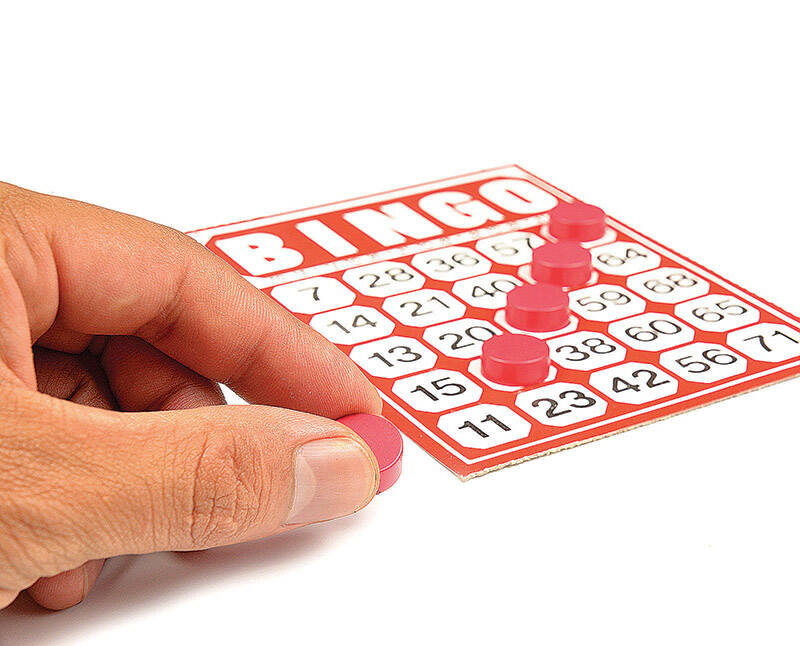No bingo night for homeowners associations
Q: Would you mind helping me figure out if Nevada Revised Statutes allow our Las Vegas homeowners association to host a bingo night with residents who attend paying a small amount for a card with the balance of the pot shared only among winners? I don’t find anything referenced in our covenants, conditions and restrictions.
A: NRS 463 permits qualified organizations to operate charitable bingo games in Nevada and assigns responsibility of this provision to the Nevada Gaming Control Board and Nevada Gaming Commission. A qualified organization is defined as bona fide charitable, civic, educational, patriotic, political, religious or veterans’ organizations that are not operated for profit. Sorry, bingo night is out. Associations would not qualify.
Q: If a resident receives a violation notice from the HOA and wishes to take the violation to a hearing are they allowed to see and confront their accuser, like in criminal court? The reason I am asking is that we have one resident who we suspect is filing numerous complaints against residents. The HOA community manager when asked has refused to identify the person or persons filing all of these frivolous complaints. As a secondary question, if we were to take the violation to a hearing versus filing out the form saying we will correct the minor issue, is there a disadvantage in doing that?
A: NRS 116.31085 pertains to hearings. Under subsection 4, the homeowner being called before the board in an executive session is entitled to attend all portions of the hearing related to the alleged violation, without limitation, the presentation of evidence and the testimony of witnesses. The homeowner is also entitled to due process as set forth by the Commission for Common-Interest Communities and Condominium Hotels, which include, without limitation, the right to counsel, the right to present witness and the right to present information relating to any conflict of interest of any member of the hearing panel. The homeowner is not entitled to attend the deliberations of the executive board.
Often, it pays to attend a hearing, especially if you did not violate the regulations as you are able to have at least a two-way conversation with the board.
Q: In our community, we have a lot of problems with our landscaping company. Is it the responsibility of the management company to make sure they are doing their job properly or is it the responsibility of the board? I know the management company can’t hire a landscaping company without the approval of the board, but once a landscaping company is in place, who is responsible?
A: It depends. Often an association has a landscape committee in charge of the landscape company. If a management company has been given the charge to monitor the landscape company, ultimately, it is the board’s decision to fire them for lack of performance.
Q: Is it true an HOA can only cite its own rules for a violation, and not, for example, county ordinance? New to being a board member. Our all-new board attempted cleanup of our 30-year accumulation of rules, but maybe went too far. We thought if something was covered in law, specifically covering pet waste and leashes, we could rescind the associated HOA rule. But we have now been told our HOA can only cite HOA rules for violations, so do we need to reinstate our pet rules?
Our confusion stemmed from “priority of governance” where an HOA’s rules cannot conflict with the law. Are we allowed to make our pet rules more, or even less, restrictive than county ordinance?
Always appreciate your informative column. Thanks!
A: Even if your CC&Rs has a section that requires residents to abide by state and federal laws, you would want your rules and regulations to be more explicit. This way you would have less conflict with residents who were cited for violations.
Your regulations can be more restrictive than the city or county ordinances. Your regulations cannot be less than city or county ordinances.
Q: I came across your information online and wanted to see if you could possibly help me. My husband has a company truck that has no signage on it and is parked in our driveway. This vehicle being in our driveway was an on-and-off issue with our HOA. They sent us a notice about two years ago, so we compiled and parked outside of the community but there is a community across the way and they left a note on the work vehicle that we couldn’t park on the street outside of their community either because of it being a private roadway and they are responsible for the road.
So we reached back out to our HOA and informed them of this issue and never received a response from them so now two years later it started up again.
Is there anything we can do? Our neighbors don’t mind the vehicle being parked in the driveway. Any information would be greatly appreciated.
A: You need to check your rules and regulations. If the association’s rules prevent you from parking your truck in your driveway, you would need to ask for a variance from your board, otherwise you would be fined.
If the company truck is a utility service vehicle pertaining to electricity, gas, water, sewer, telephone, cable, antenna service, under NRS 116.350 section 4-5, your truck could be parking on your driveway regardless of the association policy.
Barbara Holland, CPM is an author, educator, expert witness on real estate issues pertaining to management and brokerage. Questions may be sent to holland744o@gmail.com.














